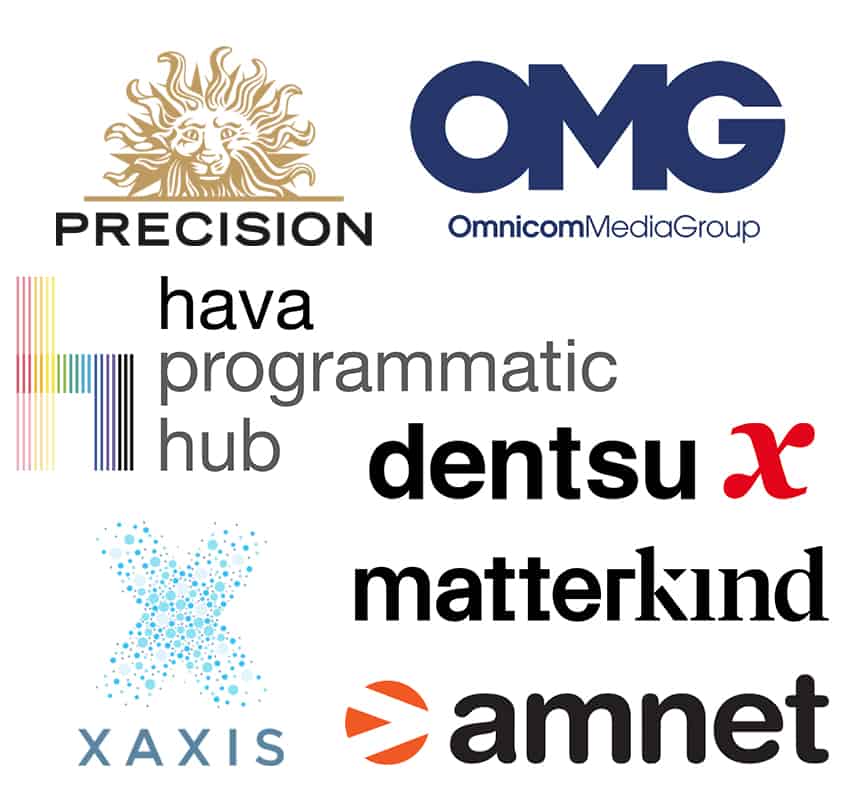Learn about the Agency Trading Desks across major Agency Holding Companies
What is an Agency Trading Desk ?
An Agency Trading Desk (sometimes referred to as an ATD) is a specialized programmatic media planning and buying unit within a traditional advertising agency or agency holding company. Acting as a centralized hub, Agency Trading Desks enable agencies to efficiently manage and optimize programmatic advertising campaigns across multiple digital platforms on behalf of their clients. Some Agency Trading Desks handle data and audience operations also.
At their core, Agency Trading Desks are the main programmatic experts within an agency, often referred to as the center of excellence for programmatic advertising. They provide the expertise and resources necessary to navigate the complexities of programmatic media, ensuring that campaigns are strategically sound and technically optimized. This positioning allows them to offer high-scale media planning and execution, leveraging advanced data-driven strategies to maximize reach and performance.
How Do Agency Trading Desks Operate?
Most Agency Trading Desks tend to be DSP agnostic, which means they don’t rely on a single Demand Side Platform for Programmatic Buying. Its not uncommon for An Agency Trading Desk to use 2 or 3 DSPs for an Advertiser. Some advertiser clients will insist the Agency Trading Desks use the client’s own Demand Side Platform or DSP of choice.
Agency Trading Desk source their clients in two main ways;
- A Partner agency in the same agency holding group; or
- An Advertiser Direct Relationship
Despite an agency having an Agency Trading Desk, we still see programmatic buying coming from traditional media buying agencies. However, Agency Trading Desks face significant challenges from online advertising companies that leverage advanced technology to offer competitive pricing and efficiency.
Agency Trading Desks Transparency and Business Models
Agency Trading Desks operate under varying levels of transparency:
- Fully Transparent Models: Clients have complete visibility into costs, fees, and campaign performance.
- Semi-Transparent Models: Some aspects of pricing and operations are visible to clients.
- Non-Transparent Models: Often referred to as “Black Box,” where clients have limited insight into the cost structure and decision-making processes.
Strategic Role in Programmatic Advertising
In addition to media buying, Agency Trading Desks handle data-driven audience segmentation, real-time bidding, and campaign optimization. They play a pivotal role in the broader programmatic advertising ecosystem by acting as intermediaries between demand-side platforms (DSPs), data management platforms (DMPs), and ad exchanges. Many Agency Trading Desks also develop proprietary technology and foster exclusive data partnerships, further enhancing their ability to execute high-performing campaigns.
Increasing Competition in the Ecosystem
In recent years, traditional Agency Trading Desks have faced increasing competition from leading online advertising companies like Google. These companies have minimized the competitive advantages that Agency Trading Desks once had in negotiating better prices with premium publishers. As a result, Agency Trading Desks have had to adapt their strategies, emphasizing proprietary technology, exclusive data partnerships, and a focus on transparency to maintain their relevance in the programmatic advertising ecosystem.
Benefits of Agency Trading Desks for Advertisers
Agency Trading Desks offer several benefits to advertisers, including:
- Domain expertise: Agency Trading Desks have extensive knowledge and experience in programmatic ad buying, which enables them to optimize campaigns for better performance. Their expertise in data analytics services and media inventory management ensures that campaigns are finely tuned to achieve the best possible results.
- Lower cost: By offering their services to a large number of clients, Agency Trading Desks can reduce the cost of software, training, and operations, making programmatic advertising more accessible to smaller advertisers. This cost efficiency allows even smaller brands to compete in the online advertising ecosystem.
- Access to specific campaign data: Agency Trading Desks provide access to historical bidding data, optimization algorithms, bidding models, and response prediction for campaigns, which helps advertisers make data-driven decisions. This wealth of data enables precise targeting and more effective marketing campaigns.
- Outsourced campaign management: Agency Trading Desks take care of marketing campaigns, allowing brands to focus on their core business without worrying about the complexities of programmatic advertising. This outsourced campaign management ensures that advertising efforts are handled by experts, leading to better outcomes.
Major Agency Trading Desks from the Agency Holding Companies
| Agency Holding Group | Agency Trading Desks |
|---|---|
| Dentsu | Amnet, DentsuX |
| Interpublic | Matterkind (formerly Cadreon) |
| Publicis | Precision (previously known as Vivaki – Audience on Demand) |
| Havas | Havas Programmatic Hub (previously known as Affiperf) |
| Omnicom | Omnicom Media Group (previously known as Accuen) |
| WPP | Xaxis / GroupM PBU |
Advertiser-specific Agency Trading Desks
In recent years, the concept of Advertiser-specific Agency Trading Desks has gained significant traction within the programmatic advertising industry. Unlike traditional Agency Trading Desks that cater to a wide range of clients within an agency holding group, these trading desks are purpose-built to serve the unique needs of a single advertiser or brand.
Why Are Advertiser-specific Agency Trading Desks Becoming Popular?
- Transparency: Advertiser-specific Agency Trading Desks provide greater visibility into media costs, ad placements, and performance metrics, addressing concerns about the “black box” models often associated with traditional trading desks.
- Specialization: These desks are tailored to meet the specific demands of a brand, such as targeting niche audiences, utilizing proprietary data, or adhering to unique compliance requirements.
- Custom Skill Sets: By focusing exclusively on one advertiser, these trading desks can develop deep expertise in the advertiser’s vertical, ensuring campaigns are optimized for their particular industry.
- Efficient Resource Allocation: These trading desks often have dedicated teams and tools, allowing for more agile decision-making and better alignment with the advertiser’s goals.
How Do Advertiser-specific Agency Trading Desks Work?
These trading desks function much like traditional Agency Trading Desks but are structured to align closely with the advertiser’s objectives. They operate with:
- Exclusive Access: Only managing campaigns for the specific advertiser, ensuring that resources and strategies are entirely devoted to their success.
- Integrated Operations: Often working directly with the advertiser’s marketing and data teams to create highly targeted and efficient programmatic campaigns.
- Bespoke Technology: Leveraging customized platforms, tools, and data sets tailored to the advertiser’s needs.
| Advertiser-Specific Agency Trading Desk | Brand | Details |
|---|---|---|
| Headlights (GroupM) | Ford Motors | Built to serve Ford Motors, focusing on the automotive industry’s unique programmatic needs. |
| ULTRA (Mindshare) | Unilever | Designed exclusively for Unilever, allowing the brand to scale its programmatic efforts while maintaining precision in its targeting. |
The Growing Appeal of Advertiser-specific Trading Desks
As brands demand more control and visibility over their advertising investments, Advertiser-specific Agency Trading Desks offer a compelling solution. They provide a hybrid model that combines the expertise of an agency with the customization and transparency that brands increasingly require.
This trend reflects a broader shift in the industry toward advertiser empowerment, as more brands seek to bring programmatic expertise closer to their own operations while still leveraging the scalability and technology offered by agencies.
« Back to Programmatic Glossary Index
Food Targeting Categories
Since 2008, Gourmet Ads has been the global leader in food-focused advertising, specializing in Contextual Targeting. Discover a wide range of Food Targeting Categories for your next advertising campaign or programmatic deals, including Alcohol, Beverage, Cuisine, Diet, Ingredient, Kitchen Appliances, Non-Endemic, Publisher, and Recipe Targeting. We ensure your brand resonates with an engaged, culinary-inclined audience, transforming advertising campaigns into deliciously successful endeavors. Experience Gourmet Ads—where your message meets the appetite of your desired market.
Let’s Get Started !
Let the Gourmet Ads team walk you through all the options available to ensure that your Food, Supermarket, Beverage or Kitchen advertising campaign has the best possible combination of Premium Guaranteed Inventory, Scale, First Party Data, Contextual Targeting and Programmatic Advertising elements.















